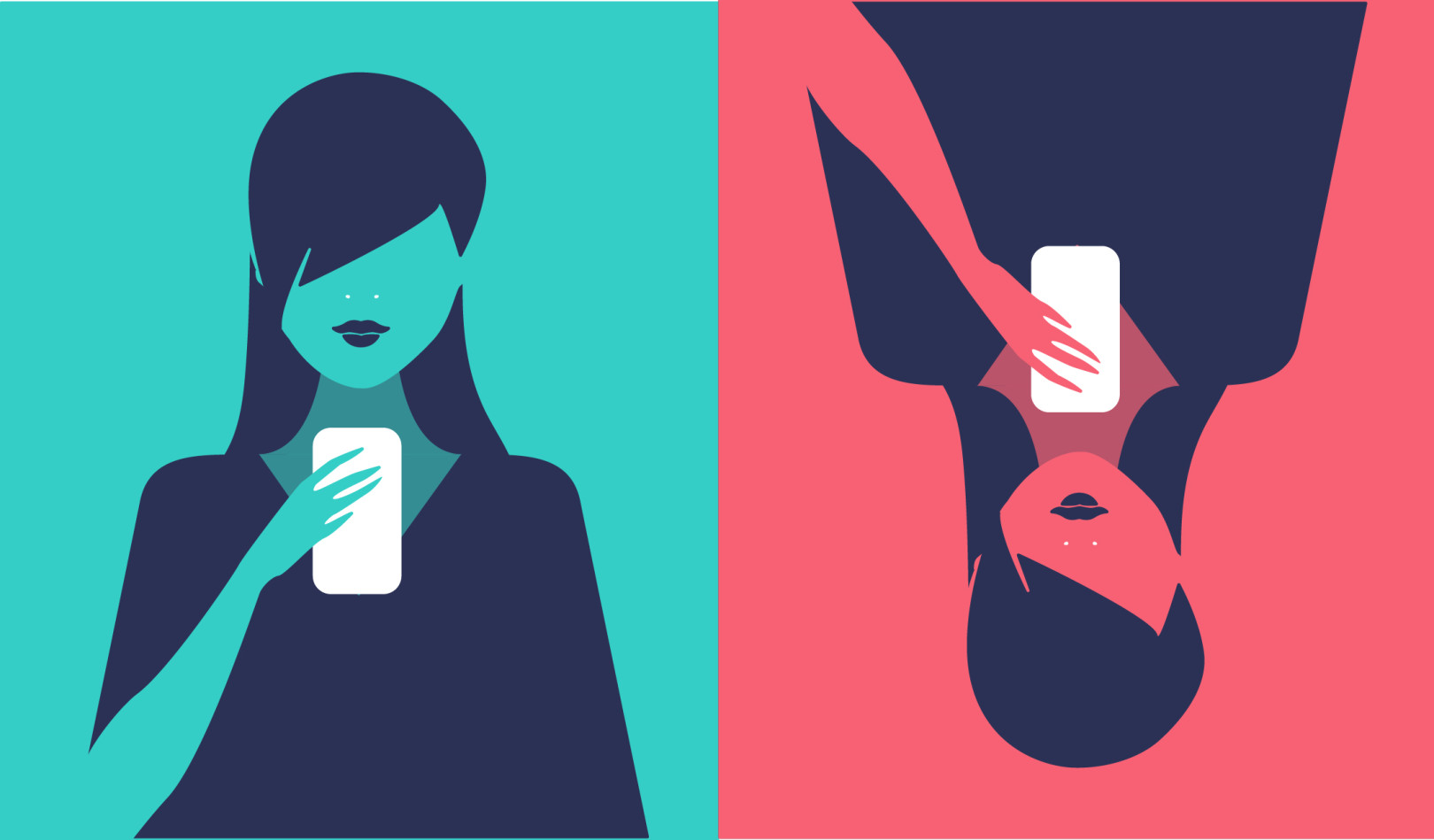How the “Finsta” (fake Instagram) trend is normalizing serious social and mental health issues through the guise of self-deprecating humor.
by Gabby Granada
Illustration by Grace Molteni
Millennials and the Generation Z cohort trailing just behind them are the indisputable kings and queens of internet comedy right now. We cackle boldly (more like a nervous laugh) in the face of our unforeseeable futures as we poke and prod the internet with scepters made of self-deprecating humor. We love to joke about things that scare us: being overeducated and underemployed, student loans, our dying planet, anxiety, marriage, and even death. (Especially death.)
For years, Twitter and Tumblr have rightfully sat atop the throne of self-deprecating social media titans. Both sites harbor a community that lauds the funniest, darkest, most brazen posts imaginable. They’ve successfully cultivated something that most social media sites lack: candor.
Now, Instagram is worming its way toward that signature brand of self-deprecating humor too, and it’s doing so through an unsuspecting trend: ‘fake’ Instagrams — “Finstas” for short.
On Instagram, the carefully curated has become the new norm, and predictably, it’s conjured a world of problems. The pressure to curate a flawless Instagram profile has polarized the nature of the app’s content and, in doing so, created impossibly unrealistic standards for what profiles should look like. The very act of making a second, more personal Instagram account is a direct response to the pressure of posting perfection. It’s no wonder people jumped at the idea of creating all-new profiles that diverge in every way, shape, and form from the tailored nature of their main Instagram accounts. On a Finsta, you can post whatever you want, whenever you want, with no judgment and the added bonus for creative pseudonyms (mine’s “Thumb Queen”—and, no, you can’t steal that).
Now, a couple years since the trend’s inception (light-years in social media time), Finstas have evolved—and not necessarily in the healthiest of ways. While some Finstas still stick to exclusively posting funny moments and unflattering selfies, it’s not uncommon to scroll past posts that peddle self-deprecating humor as a buffer for brutal honesty.
Journalists have churned out article after article, valiantly attempting to understand this social media trend birthed from a generation years after their own. These articles invariably fall short, pandering between out of touch and topical. They fail to delve deeper past the app’s ironic dichotomy of ‘fake’ profiles becoming more truthful than the ‘real’ ones. That should be the catalyst of the conversation on Finsta culture rather than the punch line. Finstas need to be approached from a much more serious standpoint on the exhibitionist nature of social media and mental health.
The trouble with the rise of self-deprecating Finstas is that, despite the fabricated nature of their name, they act as very real emotional basins for posting, well, everything. The captions of these posts range from anything to a short, sardonic quip about one’s mental state, a blurb venting about a bad day, or in some cases, a multi-paragraph tell-all, detailing an ongoing battle with a personal issue.
Finstas are being used as emotional floodgates through the increasingly transparent guise of self-deprecating humor (and many times, the posts are far too serious to warrant so much as a smirk). Since these accounts are primarily followed by small circles of friends, they’re creating a uniquely exhibitionist emotional burden for their followers.
“Whenever I read [self-deprecating Finsta] posts, even if they make me feel uncomfortable, I still feel like unfollowing them would somehow be saying ‘I don’t care about your life’ rather than what I want to say, which is: I don’t want to enable this type of behavior [because] I believe it’s not helpful for you in the long run,” said Emily, a 20-year-old college student from Minneapolis who follows multiple friends’ Finsta accounts.
The very act of following and liking these Finsta posts is problematically validating, and yet refraining from engaging with these posts is somehow even worse. There’s no easy way to go about it, so where is the line drawn for self-deprecating Finsta humor? Perhaps when it begins to normalize the continual sharing of concerning thoughts and actions.
“When [self-deprecating content] is all that someone posts, it almost feels like an overreaction to comment or text them,” Emily said. “It’s crazy that someone openly expressing feelings of unhappiness can be so normalized that you don’t [feel the] need to respond.”
Finstas are the product of repressed social media expression for the sake of “aesthetics,” but at what cost? In short, the price is the splintering of your online identity. Having two Instagram profiles allows for the curation of your idyllic self and your real self, but the choice to compartmentalize the two is ultimately yours. Do you publicize your most unabashed sense of self or opt for creating two drastically different personas entirely? Hidden behind pseudonyms and self-deprecating jokes, an increasing number of Instagram users are choosing the latter: filter out the truth and save it for Finsta.

Gabby Granada is a Chicago-native writer, activist, and film lover. She is currently pursing an English degree at the University of Minnesota—Twin Cities. More often than not, Gabby can be found eating Thai food and screaming about women’s issues with her friends. She aspires to write sarcastically for a living, work in film, and save the world from weak, power-hungry men (AKA become Carrie Fisher).
Grace Molteni is a Midwest born and raised designer, illustrator, and self-proclaimed bibliophile, currently calling Chicago home. She believes strongly in a “beer first, always, and only” rule, and is forever seeking the perfect dumpling. For more musings, work, or just to say hey check her out on Instagram.




